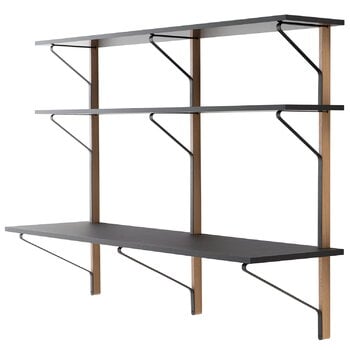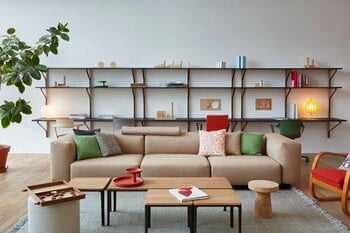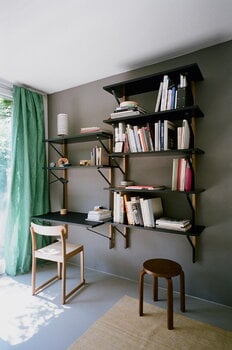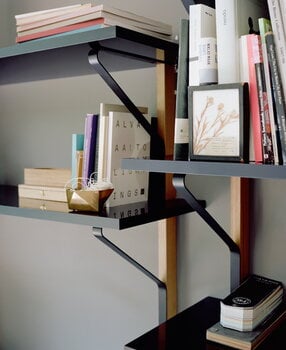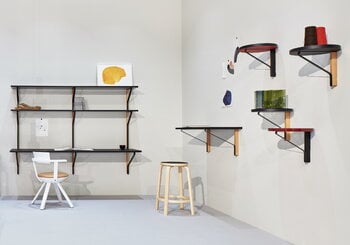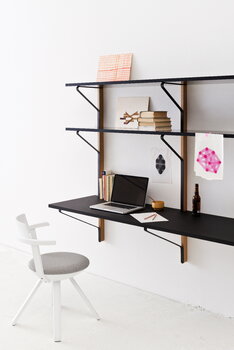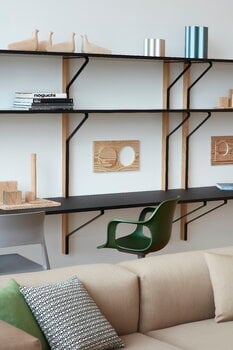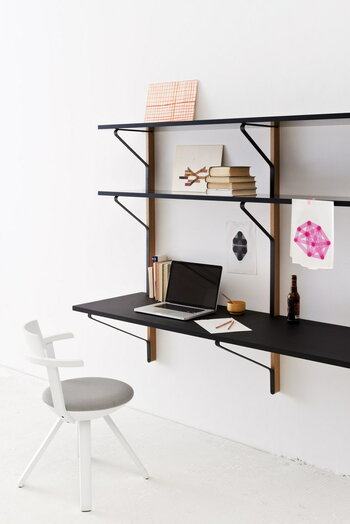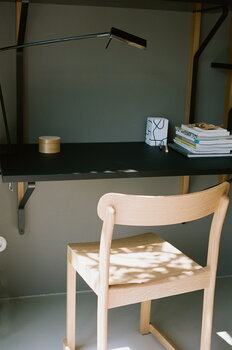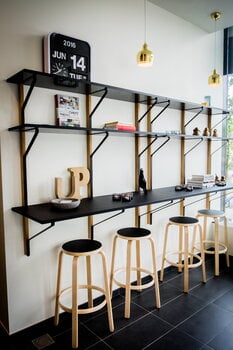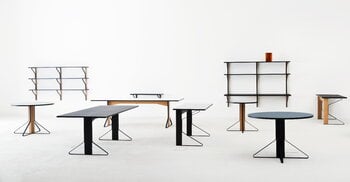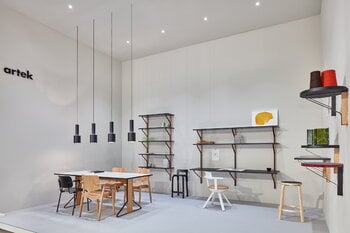Artek’s Kaari REB 010 shelf with desk consists of a linoleum desk panel, two melamine shelf panels and wall brackets made of solid natural oak and powder-coated steel.
The elegant Kaari collection was designed by Ronan and Erwan Bouroullec and launched at Stockholm’s Furniture Fair in 2015. As Alvar Aalto’s furniture was characterized by the L-leg, the Bouroullecs’ Kaari tables feature a unique leg system composed of vertical wood and bent steel. It became obvious during the design process that the legs could also be used to support wall-mounted objects such as shelves and consoles. The series has an attractive silhouette that is created by the wing-shaped steel structure. Kaari combines the traditional materials of Artek in a new and fresh way. Invest in a future classic and preserve it for generations to come.

